I feel like every semester, I have that one class that I can't stop talking about to my friends and family. This semester, it's my Corporate Resilience and Sustainability class, which counts for my management concentration in the Comm School. However, it's so much more than just an elective to fulfill a requirement. This class has already, in three weeks, taught me so much about how climate change and sustainability impact businesses, and how many companies will have to change their mindset about prioritizing short term vs. long term gains in the future. With that in mind, I've looked into a few ways that UVA is tapping into this increasing need for sustainable thinking, in businesses and universities alike.
1. All of your garbage and food waste in the dining halls goes to composting, not the trash
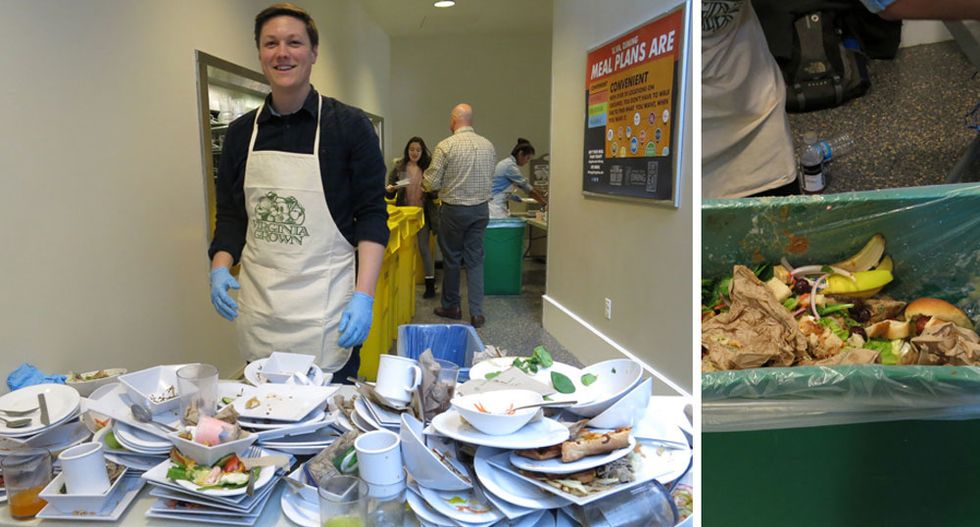
I remember first year how I always wondered why there were absolutely no trash cans in the dining halls, until I finally read the signs next to the dish conveyors. They informed me that all of the food waste and used napkins on my plate after each meal would be composted or recycled in some way. Though I do think that UVA would have less food waster overall if they just served better food, this is a nice way to help the environment when you're dashing out of Newcomb at 12:56 pm for your 1 pm class.
2. In 2011, UVA pledged to reduce its greenhouse gas emissions to 25% below 2009 levels by 2025
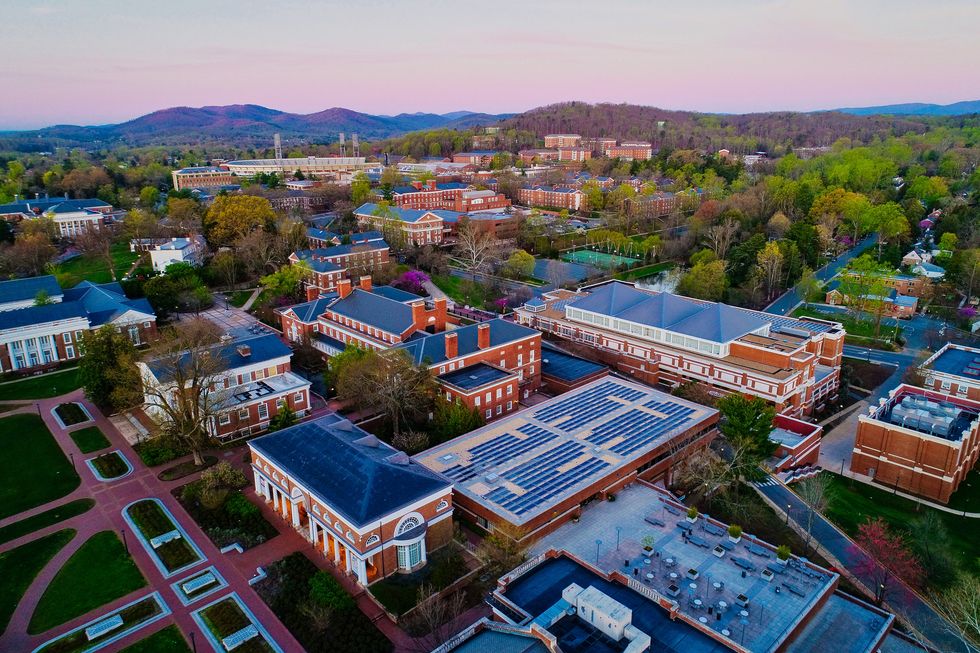
ojwgq1ostm42ulxuw45kfbt8-wpengine.netdna-ssl.com
For more information on this pledge, check out this document, which outlines UVA's greenhouse gas action plan for the next couple of decades. This GHG pledge is just one of several energy-related pledges that are a part of UVA's overall sustainability mission, with others including pledges to reduce UVA's nitrogen and carbon dioxide footprint. While energy consumption might be a little harder to visualize than recycling plastic bottles, it is important to recognize that not all the ways we impact the earth are visible to the naked eye.
3. UVA operates a program that collects new or gently used office supplies from faculty members and donates them to the Cville community
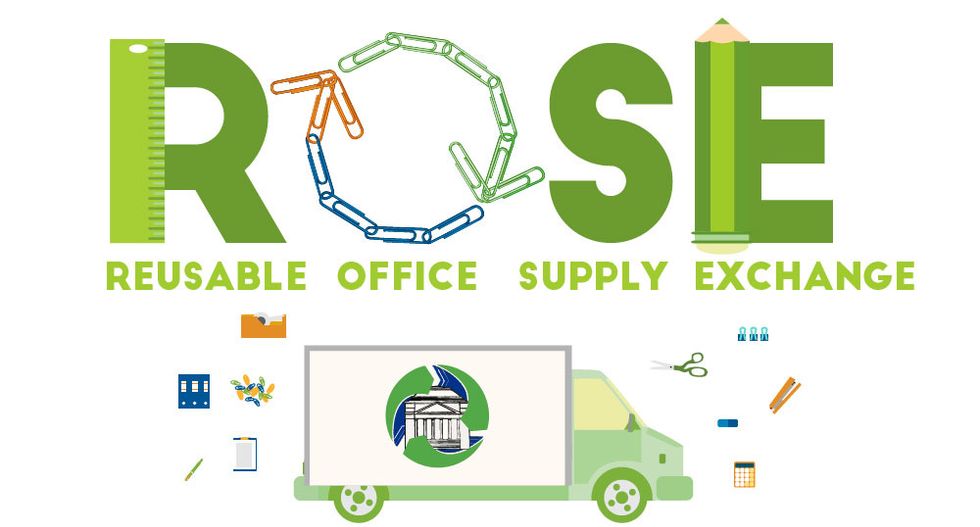
This program, better known as the ROSE program, takes into account an important source of waste creation at a major university, that being office and school supplies. It might not seem like donating supplies is a hugely sustainable effort, but by donating already-purchased supplies that have never been used, participating faculty are reducing the amount of supplies consumption in general in Charlottesville. In general, buying fewer items in the first place is a fantastic way to cut down on waste and live more sustainably.
4. A building sustainability fund called Delta Force has saved UVA over $20 million in energy costs since 2007
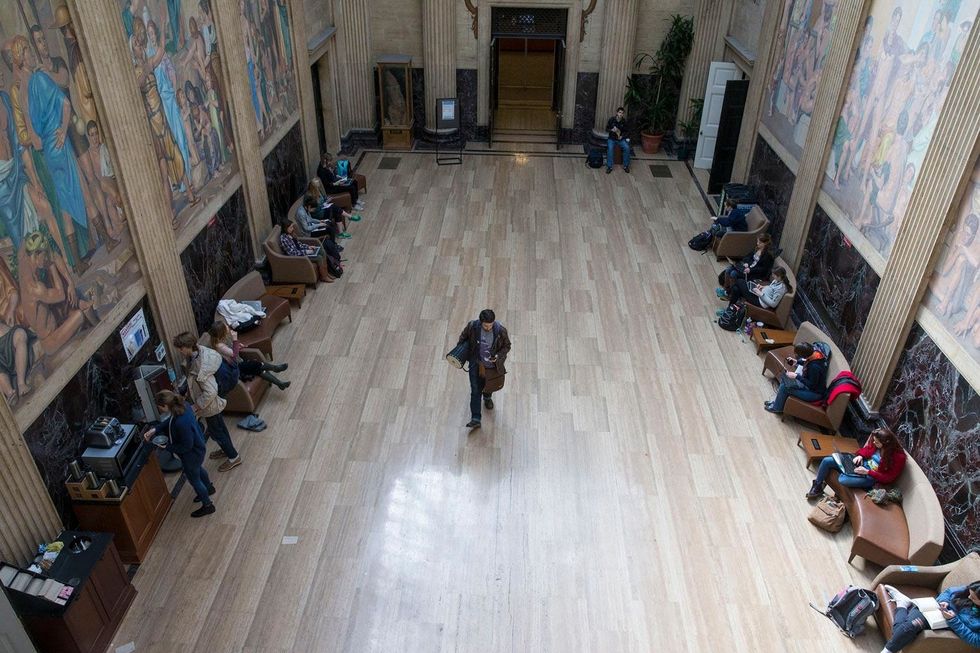
If you're interested in reading more about this fund, which has contributed to over 20 building projects on grounds, check out this page. You can also get more info on this topic here, which provides a regularly updated electricity and water tracker for buildings on grounds, so anyone interested can see how much energy they're using. It's fascinating to look on that energy tracker and see exactly which buildings on grounds use the most energy - I had no idea that Wilsdorf Hall and the Medical School building were consistently the two highest energy users on grounds until I checked this out.
5. There are specific sustainability initiatives, called "Green Labs," addressing energy use in research labs across UVA

Something I was previously unaware of was that while UVA research labs only take up 16% of the square footage of building space at UVA, they account for over 30% of its energy use. Given that research is such a big part of many students' academic experience at the university, I'm glad that UVA is further celebrating its commitment to research by also committing to sustainable research through fume reduction and specialized recycling initiatives.
6. Lunchtime lectures about sustainability, aptly named "Sustainability Lunch & Learns," inform UVA faculty about sustainability issues
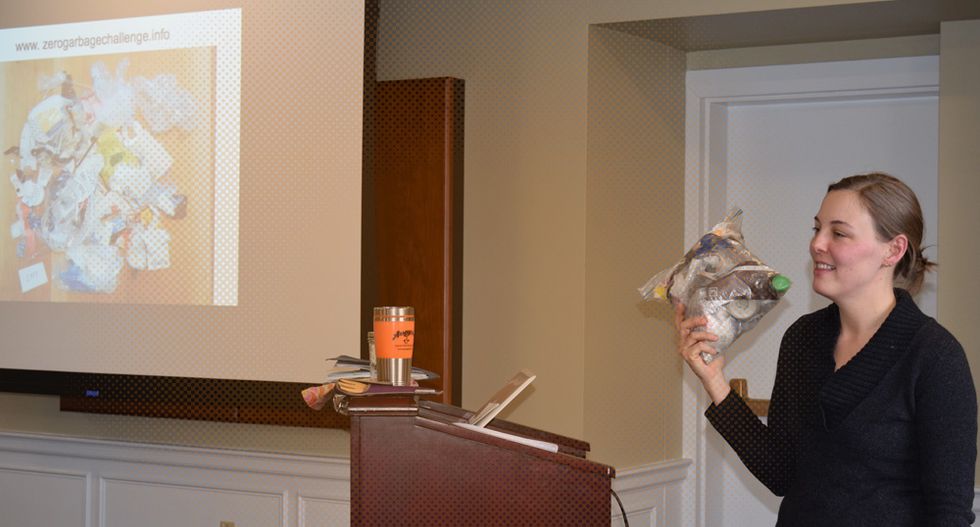
I say "inform UVA faculty" because I received information via an email newsletter about one of these last semester, registered, and attended, only to quickly see that I was the only student there. I am still not quite sure why I was included in this invite when this series is clearly geared towards UVA faculty, but nonetheless it was very informative to spend my lunch time learning about how different industries should address sustainability.
7. The "Hoos Reuse" program helps students to be more sustainable and generate less trash while moving out in May

One thing I did not realize before coming to college was just how much waste is generated each time I've moved into or out of a location, and also how much stuff I thought I needed to live somewhere that I actually never ended up using. This program allows students to donate "appliances, non-perishable food, clothing and furniture" to local charities, instead of sending unwanted items to a landfill. I definitely plan to use this during finals in May, when I'll be trying furiously to clear a few "complementary t-shirts I've received but never worn" out of my closet.
8. The "Skip the Straw" campaign that has been (in my opinion) surprisingly polarizing
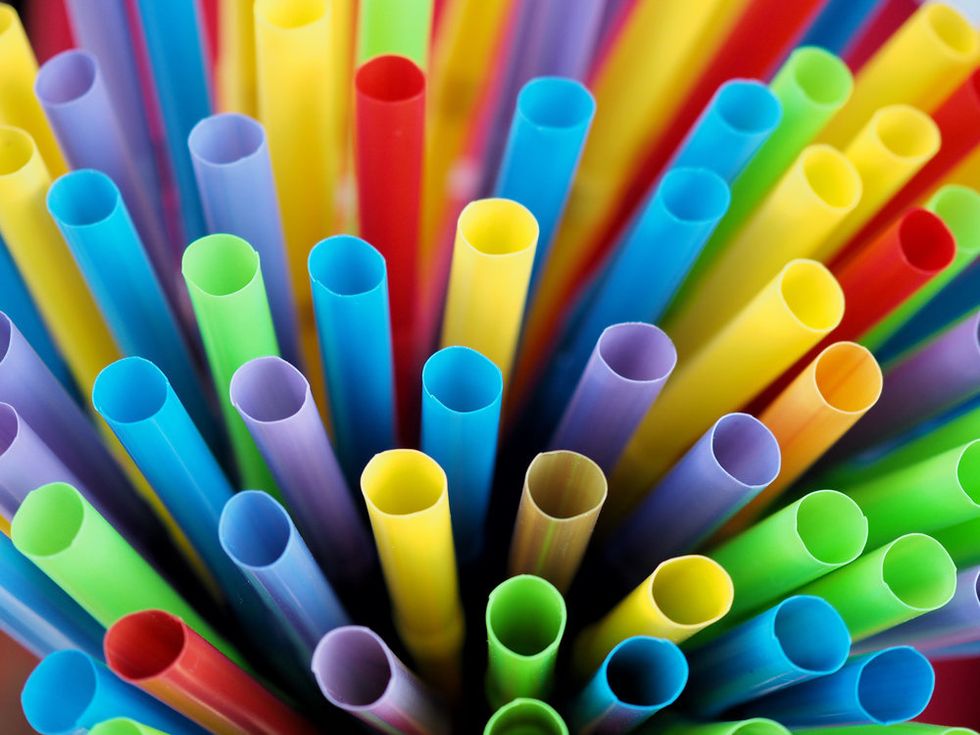 Many tubes or straws for the sale of cold drinks.
Many tubes or straws for the sale of cold drinks.Over the past year or so, you may have noticed increased signage around grounds announcing that UVA is eliminating straws from dining halls and is urging students to "skip the straw" when ordering drinks. Though I do agree that fixating on straws alone is not going to make the world much more sustainable, the idea that UVA is consciously trying to get students to cut down on single-use plastic consumption is an important part of working towards a greener future.
9. UVA has committed to reducing waste at both football and basketball games with "Green Game" and "Zero Waste" programs

I love that UVA recognizes that even events like football and basketball games, two environments where students typically aren't thinking about sustainable practices, can be examples of sustainable practices. By promoting the "Green Game" challenge, where UVA competes against other ACC teams to recycle and divert the most waste during a home football game, and the "Zero Waste" basketball game where UVA vies to divert over 90% of gameday waste from landfills. the school showcases its dedication to seeing its varsity sports as opportunities for sustainable growth.
10. A plethora of classes and academic programs that teach students about sustainability in a variety of contexts

In order for sustainability initiatives to really take hold in this generation of students, they need to be further legitimized by classroom instruction. These six classes are all recent additions to the UVA course catalog, one of which is the fantastic "Corporate Resilience" class I'm in right now. Unfortunately, it has been brought to my attention that many of these professors have to continually re-petition to teach these classes and convince their deans that sustainability is worthy of classroom discussions. So if you really feel strongly about this subject, take one of these classes to prove that they are worthwhile in the long-term.
Just from writing this article, I've learned about how much interesting information you can come across if you start going down the inevitable rabbit hole of "seeing what else is on the virginia.edu website instead of doing your homework." I also thought I would have a hard time finding information on 10 unique sustainable initiatives at UVA, but that was not difficult at all, though of course there are many other ways that UVA could be even more sustainable. This shows that though they're not always hugely publicized, there are a lot of existing ways to positively impact sustainable change at UVA.



















